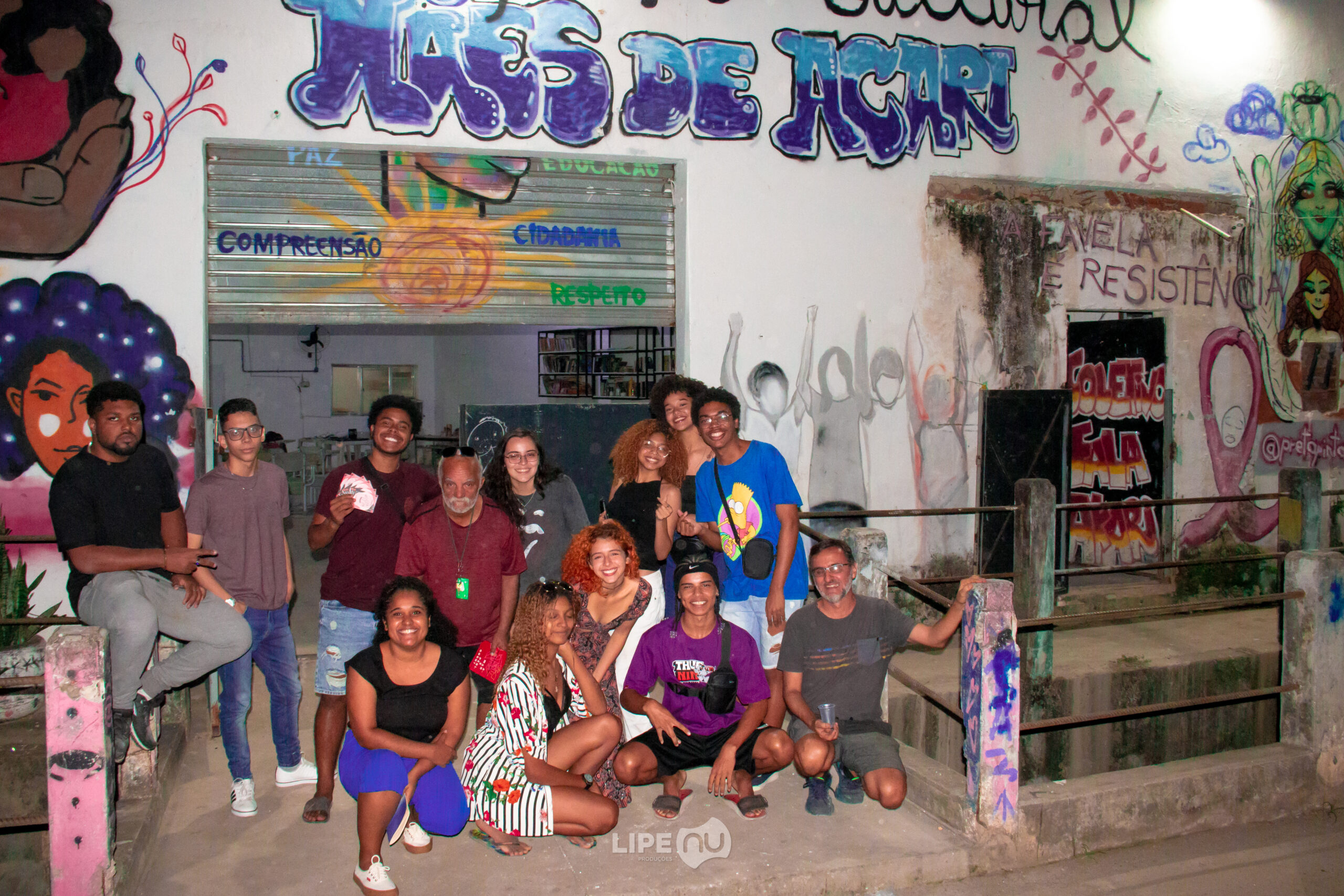
On Saturday, June 24, St. John’s Day when many Rio de Janeiro locals gather to celebrate traditional June festivals, young residents in the favela of Acari and surrounding North Zone gathered late afternoon at the Mothers of Acari Cultural Center for the second CineSarau “CinemaSoirée” Nzinga de Angola. Organized by Acari Magic Slam, Fala Akari Collective, Faveleira Cultural Center, and the Black Poetry and Creole Art Group, the event included debates on popular education and Afro-Brazilian culture and featured a film screening and poetry slam.
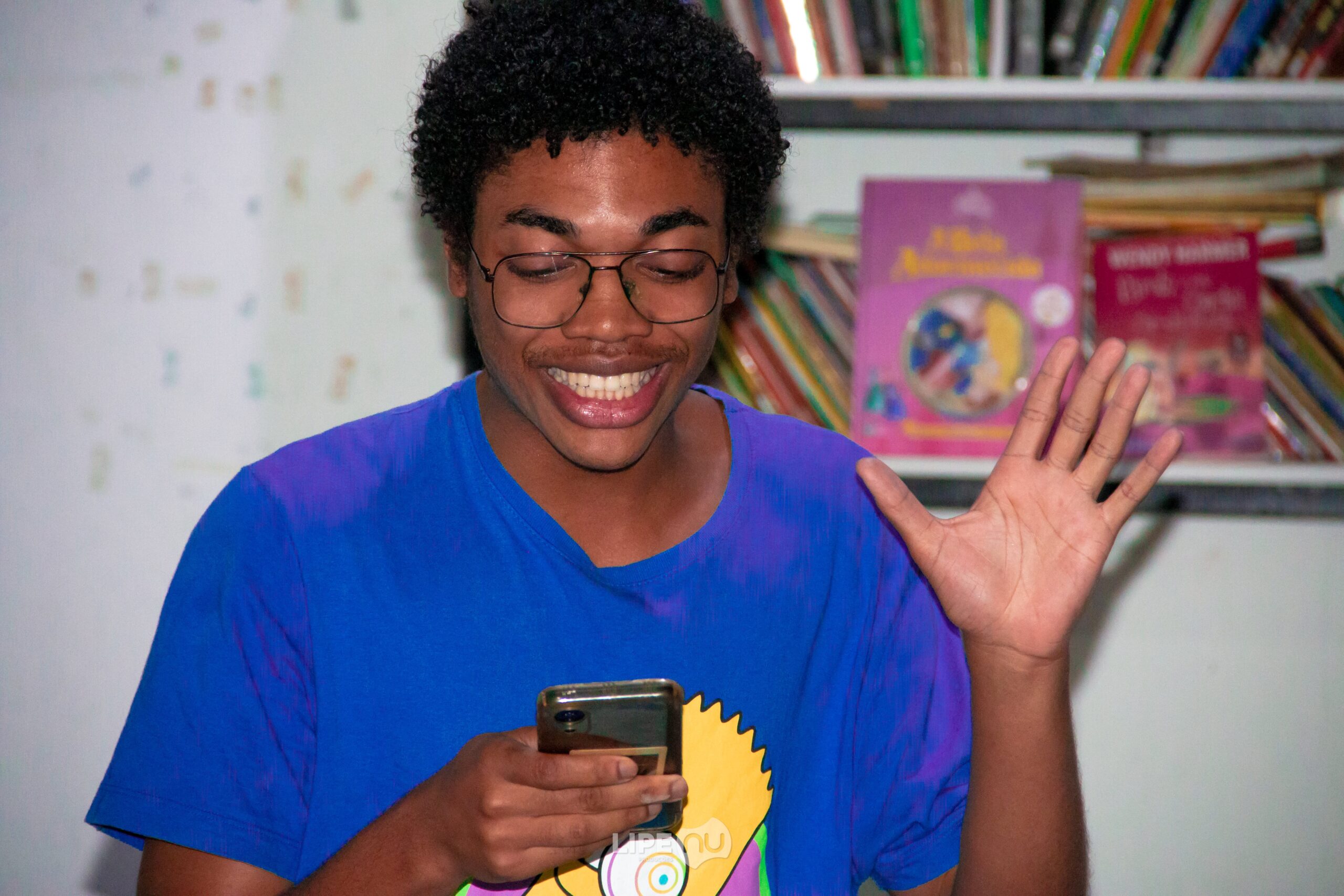
CineSarau Nzinga de Angola and Popular Education
The CineSarau Nzinga de Angola event was produced by Vanderley da Cunha, known as Deley de Acari, widely recognized for his historic trajectory as a human rights activist defending social, cultural, and political rights in the favelas. The CineSarau team also includes members of Acari Magic Slam, guests of Slam Granito. It is not the first such event to take place in the Acari favela, but this new iteration seeks to reaffirm the fight for grassroots education beyond the classroom and traditional curriculum of college entrance exam preparatory courses.
“CineSarau Nzinga [de Angola] was created to celebrate the 360th anniversary of Queen Nzinga Mbandi of Angola’s death in 1663. It is customary in Black African societies to celebrate death as a passage from earthly to ancestral life, and as such it is cause for joy. In turn, it is also an opportunity to implement Law 10.639/2003, which turns 20 this year, but has never been effectively carried out in public schools, pre-schools, or in universities. The format of CineSarau Nzinga de Angola consists of documentary film screenings, photography, written and spoken Black poetry [performance], and drawings, visual, and graphic arts. [The event] takes place every month.” — Deley de Acari
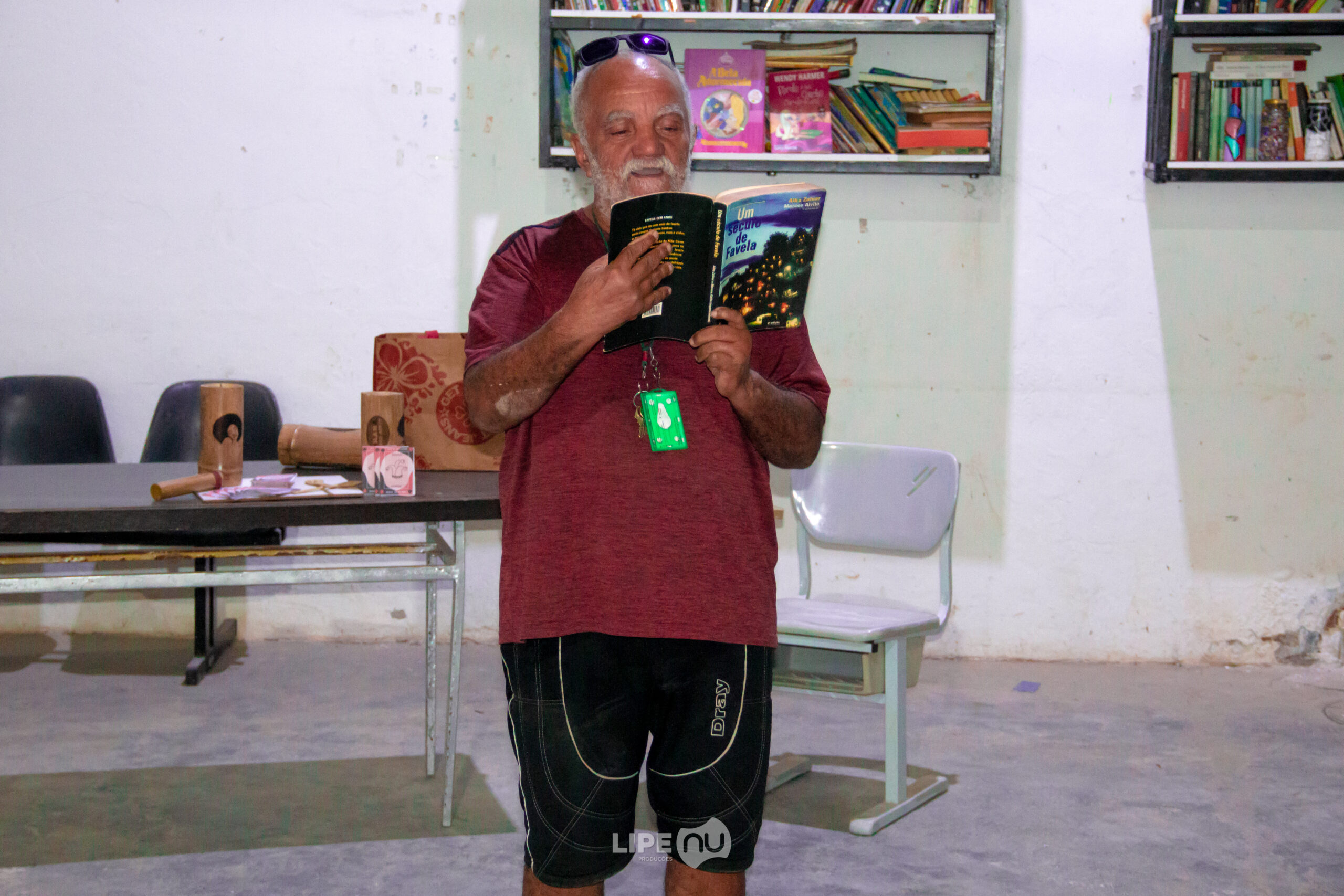
The June 24 event was split into three parts. First, poet Deley de Acari explained the importance of the activity. He spoke of his idea to join up with the college entrance exam preparatory course (NIDES/UFRJ) in Acari, which had around 90 registered students at the start of 2023 and operates through the work of teachers and students from the area.
For Deley, it is important for the exam prep course content to be brought into dialogue with Black literature. He emphasizes the urgency of putting Law nº 10.639/2003 into practice through teaching African history and Afro-Brazilian culture in all Brazilian schools.
Second, a short film was screened of performance poet Walietcha Neto who participates in Angolan poetry slams, followed by a discussion on the video.
At the event, participants were able to recite their poems, with the majority focusing on ethnic-racial themes. Poet Jair Dias Augusto Júnior, considered a mentor by the attending slammers, briefly explained the rules of a slam battle to the audience. Afterward, the poetic competition began, addressing themes of love, pain, loneliness, territories, and rallying around the battle cry:
“We may fall, but we do not stop smiling, slam magic!”
In response, the audience shouted:
“Acari!”
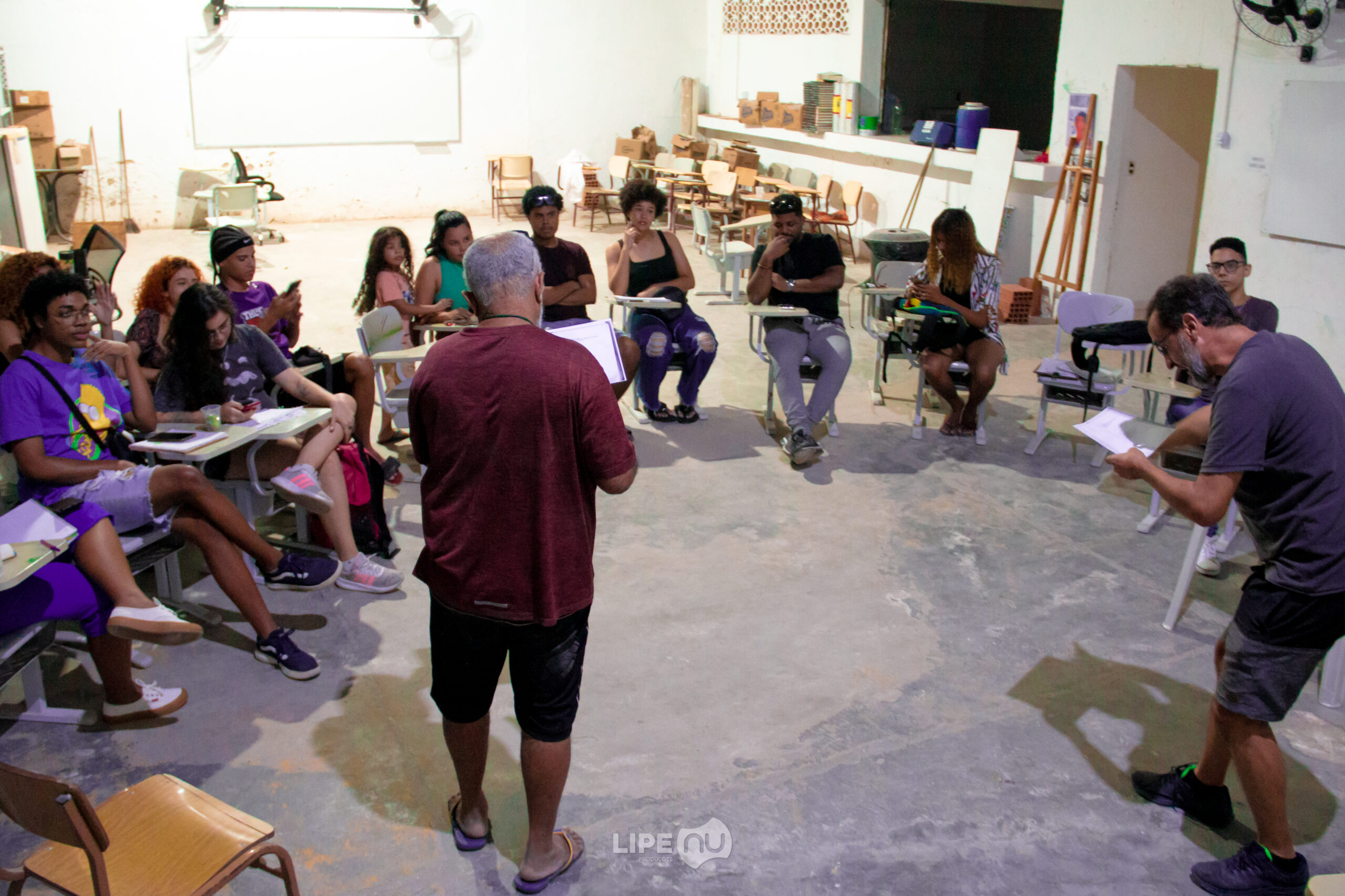
20 Years of Law 10.639/2003: Barriers and Prospects
Established thanks to the historic struggle and organizing of Brazil’s Black movements, Law 10.639/2003 is a public education policy enacted in 2003 during the first term of President Luiz Inácio Lula da Silva. It is meant to ensure African and Afro-Brazilian history and culture feature in classroom curricula, instructing educators to include the subject, in interdisciplinary ways, in the formation of Brazilian identity.
For Deley, there is no effective implementation of the law in traditional educational spaces. He criticizes the way the legislation was implemented in Brazil and asks: why, after two decades, is the law only remembered on November 20, Brazil’s Black Awareness Day? And he concludes: “[this is a] representation of the absences and gaps in its implementation.”
The poet also highlights the importance of reclaiming and recognizing Black figures that are erased from history time and time again. Important people central to the history of Brazil and Africa need to be taught, such as Nzinga de Angola, Luísa Mahin, Salgado Maranhão, and Conceição Evaristo.
Deley is aqaiting a response from the State Education Secretariat (Seeduc) regional board so that he can take CineSarau activities into local schools, focusing on reclaiming Afro-Brazilian memory and culture. He also intends to hold another slam session at the Mothers of Acari Cultural Center for the 33rd anniversary of the Acari Massacre which deeply marked the favela’s history. CineSarau Nzinga de Angola is due to start taking place in schools through the Youth and Adult Education (EJA).
Acari Magic Slam and Slam Granito
Between late afternoon and early evening, the event drew in a very diverse crowd. Daniella Elizabeth, 17, known as Beth, Acari Magic Slam slammaster (master of ceremonies who produces and leads the event), says the project intends to go into schools in order to engage students in slam culture.
“We went into school to teach people how to deal… with their traumas and their emotions through poetry.”— Daniella Elizabeth
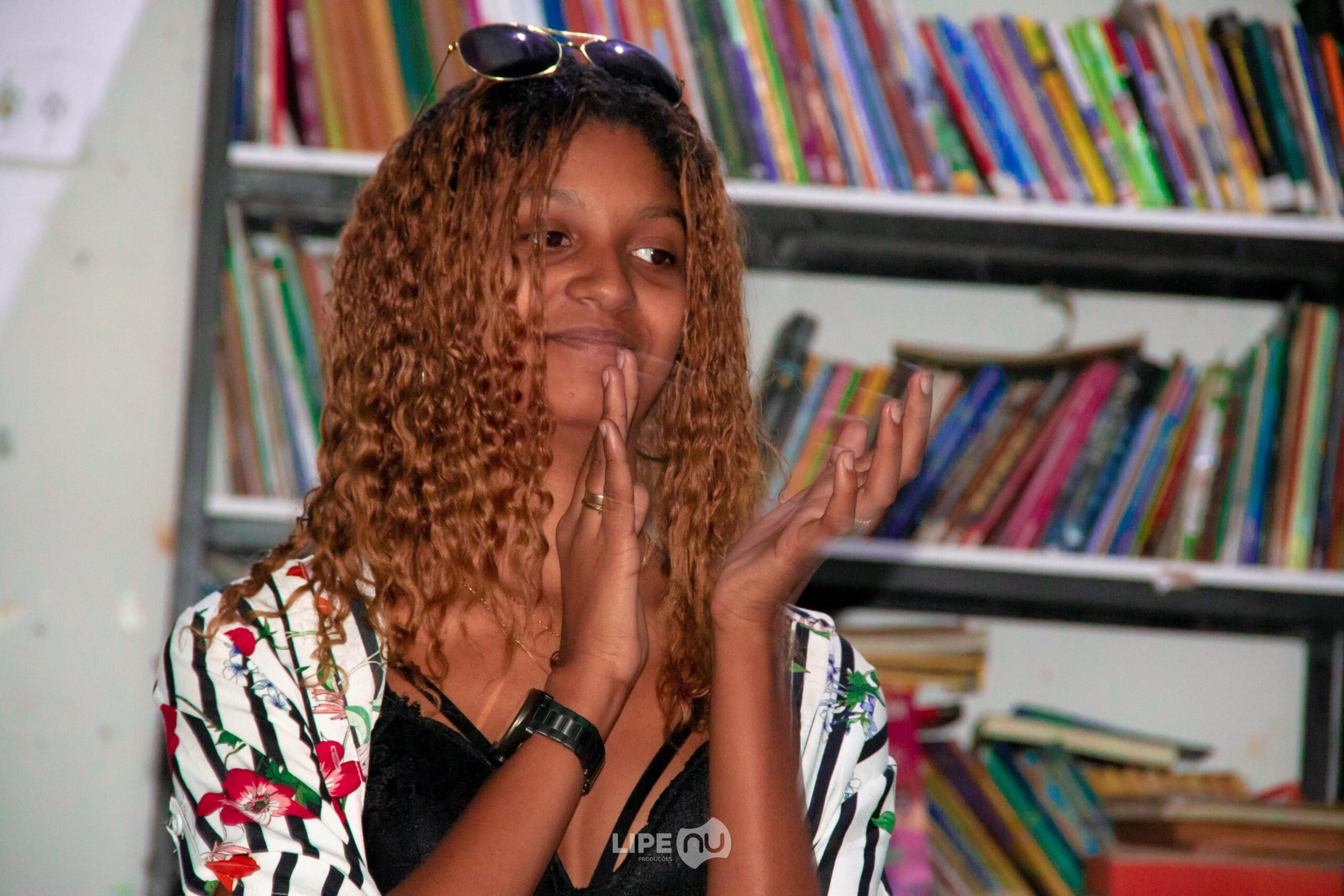
She also says:
“My poems are based on stories I hear from the socio-emotional lectures I give in the public school system, through a project I do in schools.”
Poet Matheus Augusto, 19, better known as Efêmero, is a member of Slam Granito and a psychology student. He says he started literary writing through a poetry workshop held by one of his mentors in school. He describes what a slam is:
“It is a spoken word battle where poets can battle with their own poetry… people recite a poem and receive a score from zero to ten. The highest and lowest scores are cut… each one has a theme, the judges always change, the meaning of the poem can change too.”
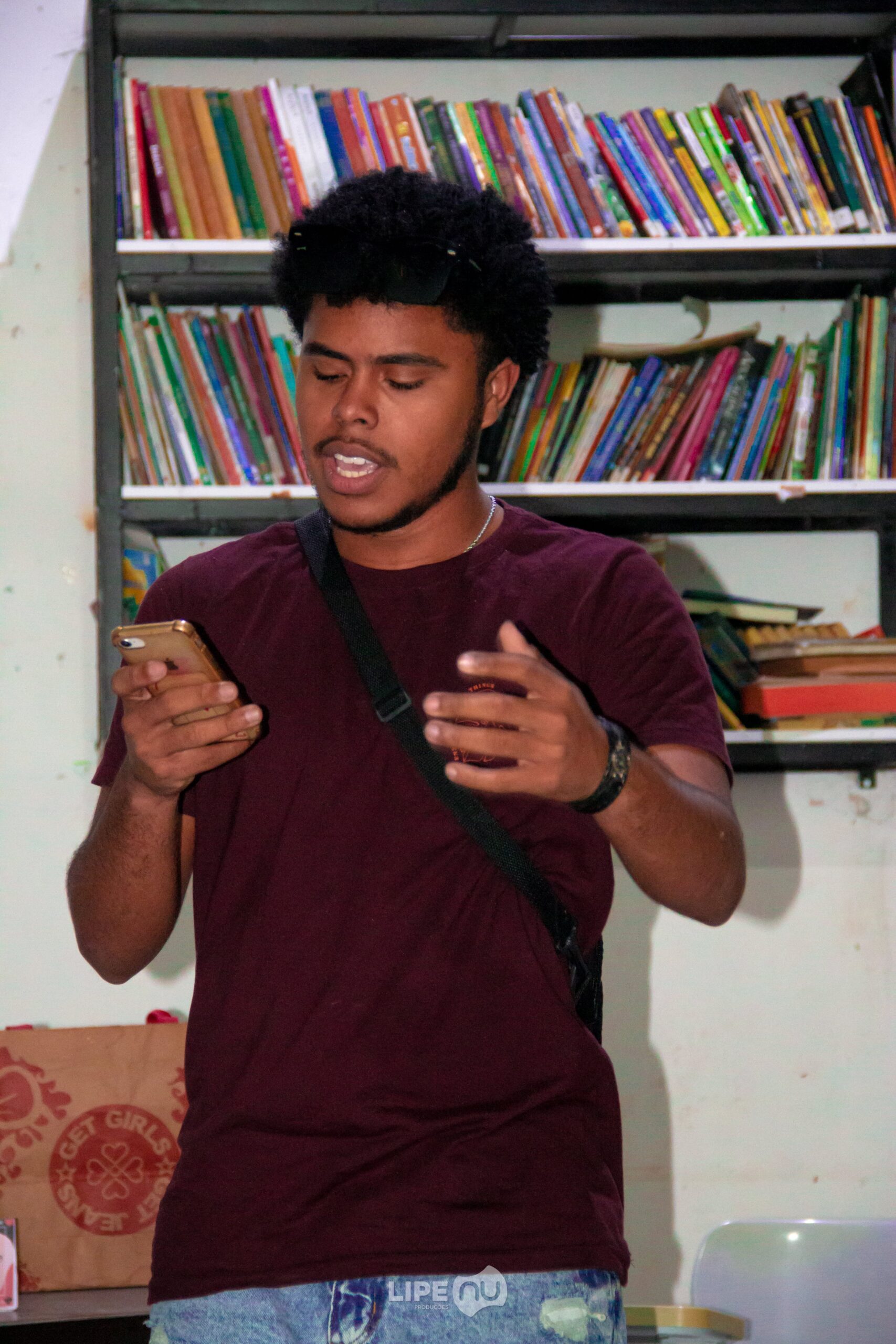
Slams also feature artistic performances where people can sing and dance as well as recite poems. Letícia Vitória, 17, a young resident and Acari college entrance exam prep course student says that through slam she can see “the world opening up.”
“I see the world opening up, because I’ve had the chance to hear other perspectives I hadn’t had contact with before. I got to know myself in a more agreeable way and have had the opportunity to get to know incredible people… slam is a welcoming space that provides new outlooks for life, that provides a way of meeting new people. The goal is to expand slam so more people can join in and have the opportunity to feel this experience.” — Letícia Vitória
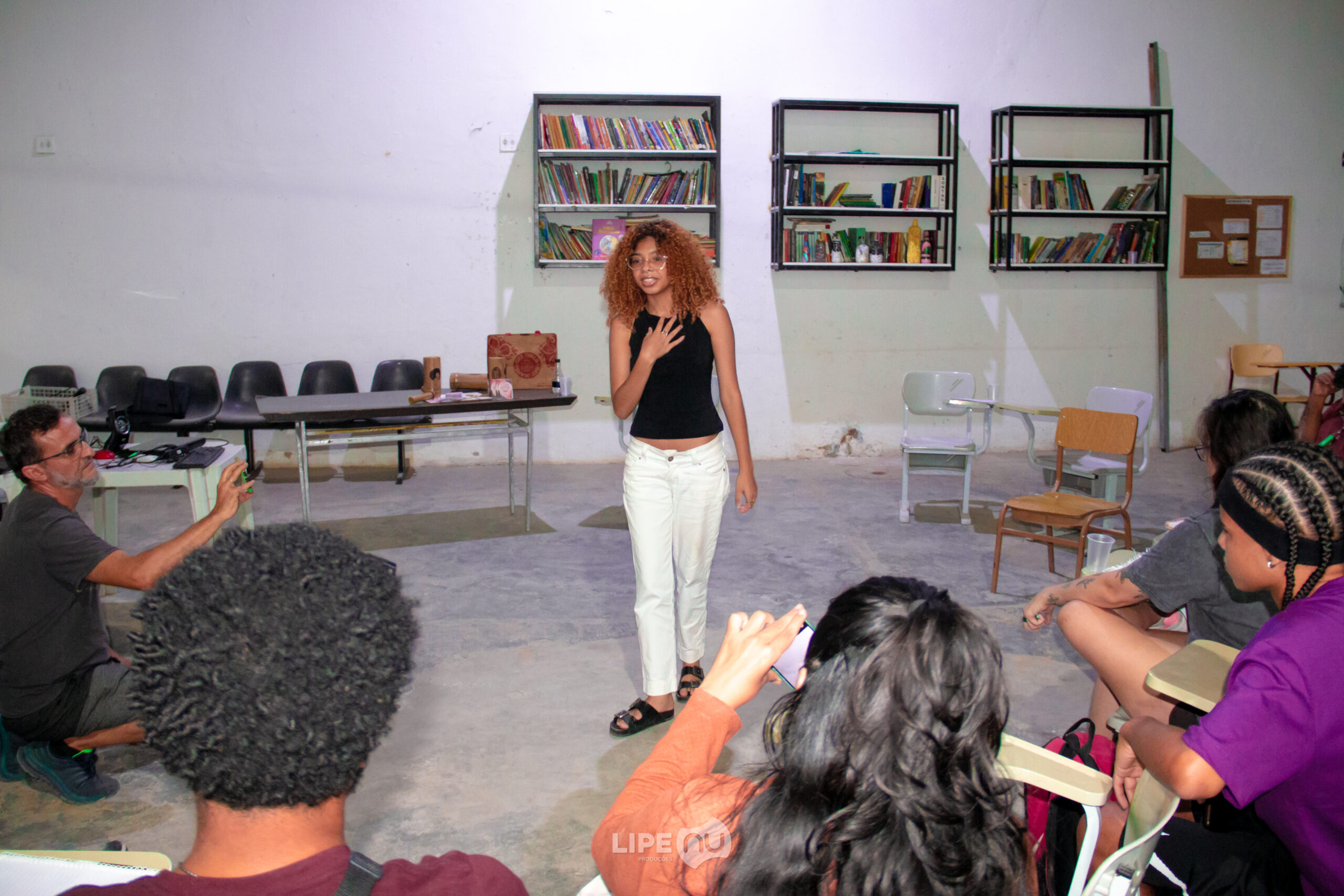
Agatha Luiza, 16, also a resident of Acari, reiterates the importance of slams.
“Slam is important because it is culture. Slam brings together many things, it brings together emotions, brings together issues… I feel it is important that our favela and our children have access to this culture, since many people from the urban periphery are deprived of cultural activities. And I think it is very important to bring slam because it opens many doors, so people and youth can discover many things.” — Agatha Luiza
About the author: Ingra Maciel, 31, is a resident of Acari who works as an educator at the Museum of Life. She has a postgraduate certificate in teaching the history of Africa from Colégio Pedro II and in human rights, race and racism from ENSP/FIOCRUZ. During her undergraduate degree she developed her research on the criminalization of carioca funk and its process of resistance, and she is currently studying carioca funk from a pedagogical perspective.
